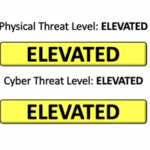
Faith-Based Daily Awareness Post 28 October 2025
Faith-Based Security Headlines
These updates are shared to help raise the situational awareness of Faith-Based organizations to best defend against and mitigate the impacts from all-hazards threats including physical security, cybersecurity, and natural disasters.
Places of Worship Protective Security Scheme
The Places of Worship Protective Security Scheme is a UK Home Office initiative that provides funding to improve security at places of worship and associated community buildings that may be vulnerable to hate crimes or terrorist attacks. The scheme offers grants for physical protective measures such as CCTV, alarms, secure doors, fencing, and lighting to help reduce the risk of attacks and increase community confidence. Eligible faith institutions can apply for funding through an online process, with guidance provided on eligibility, required documentation, and the assessment process. The initiative supports the government’s broader strategy to protect faith communities and promote safety and cohesion across the UK.
Analyst Comments: The UK’s continued investment in the Places of Worship Protective Security Scheme reflects an acknowledgment of the persistent threat of hate-motivated and ideologically driven attacks targeting religious communities. The program serves both a deterrent and reassurance function enhancing physical protection while signaling government commitment to safeguarding diverse faith groups. Given recent incidents across Europe involving threats and vandalism against religious institutions, this funding round may also aim to proactively strengthen community resilience and encourage reporting of suspicious activity. From a security perspective, the scheme highlights the importance of integrating physical security, community engagement, and information sharing as part of a comprehensive protective strategy for soft targets.
Hurricane Melissa, now stronger than Katrina, is closing in on Jamaica
Hurricane Melissa, a Category 5 storm with sustained winds up to about 175-185 mph, is bearing down on Jamaica and is forecast to be the most powerful hurricane ever to make direct landfall there. The storm’s path is bringing life-threatening risks, including storm surges up to 9-13 feet along the southern coast, torrential rainfall possibly reaching 40 inches in mountainous areas, and catastrophic flash floods and landslides in the island’s steep terrain. Officials in Jamaica have issued urgent evacuation orders for low-lying coastal zones and set up hundreds of shelters, yet many residents remain in place. The combination of extreme winds, slow storm movement, heavy rain, and Jamaica’s geography means large-scale infrastructure damage, long-lasting power and communication outages, and deeply disrupted communities are highly likely. After affecting Jamaica, Melissa is expected to move on toward Cuba, the Bahamas, and possibly further north, keeping threat levels high across the region.
Analyst Comments: Hurricane Melissa represents one of the most severe tropical storms in recent history. The storm’s slow movement and extremely high wind speeds suggest a dual threat of both wind destruction and flooding. Infrastructure damage in Jamaica is expected to be widespread. The event will likely strain Jamaica’s emergency response systems, energy grid, and communication networks. There will be disruptions to ports, airports, and transportation corridors which may impede aid delivery. The State Department would not say if Jamaica has specifically asked for assistance or if it anticipates making such a request. But a State Department official, speaking on the condition of anonymity under ground rules set by the department, said it has prepositioned emergency relief supplies in six warehouses that will allow for the distribution of supplies to people affected by the storm.
As recovery efforts continue, post-storm safety becomes a priority. Residents should exercise caution with floodwaters, avoid downed power lines, and ensure safe operation of generators. Improper use of generators can lead to carbon monoxide poisoning, fire hazards, or electrical accidents. Guidelines from Miami-Dade County emphasize keeping generators outdoors in well-ventilated areas, maintaining distance from windows and doors, and never connecting a generator directly to a home’s wiring without a transfer switch. Authorities and relief organizations continue to focus on restoring essential services, conducting damage assessments, and supporting displaced populations.
Protecting Your Business’s Cash From Cyber Criminals
FREE WEBINAR TORDAY! Celebrate Cybersecurity Awareness Month with a webinar from the National Cybersecurity Alliance. Cybercriminals don’t just target your systems; they target your people. Tricking your people into sending the criminals your money is one of the most common and costly scams impacting small and medium-sized businesses today.
In this webinar, you’ll learn
- How criminals trick employees with fake invoices or urgent requests
- The warning signs your staff should be able to recognize
- Practical steps you can take to stop these scams before they cause financial or reputational damage
Whether you manage finance, HR, operations, or the entire company, you’ll leave with clear, actionable strategies to better protect your organization and community.
This webinar is a free, live presentation of the second part of our 6-part Cybersecure My Business training course. For more details on the full course, please reach out to [email protected]
The webinar begins at 1:00PM ET. Register for the webinar here.
More Faith-Based Stories
- Man in Nazi uniform arrested after attacking Jewish student at Georgia bar
- Fairfax County schools denounce Muslim student groups promoting hostage taking, violence on social media
- ‘Thoughts of security are always with us,’ Pittsburgh rabbi says seven years after Tree of Life attack.
- ‘Church in the Everglades’: Faith movement grows at Alligator Alcatraz protests.
- The ChatGPT Atlas Browser: What Pastors Need to Know
- CAIR-CA to Represent British Journalist Sami Hamdi Following Abduction by ICE, Condemns U.S. Attempts to Silence Critics of Israel
- Scotland’s largest mosque targeted with ‘Scots First’ graffiti
- How the Russian Orthodox Church Became a Weapon of Political Warfare
- OPM bringing protections for data breach victims to an end
- Trump administration quietly purges ICE leaders in five cities: Sources
- National cyber director says U.S. needs to counter Chinese surveillance, push American tech
- Trump nominates cyber expert for Coast Guard commandant
- The State of Exposure Management in 2025: Insights From 3,000+ Organizations
- US declines to join more than 70 countries in signing UN cybercrime treaty
- US kills 14 in strikes on four alleged drug boats in Pacific
- More than a million people every week show suicidal intent when chatting with ChatGPT, OpenAI estimates
More Security-Focused Content

The FB-ISAO’s sponsor Gate 15 publishes a daily newsletter called the SUN. Curated from their open source intelligence collection process, the SUN informs leaders and analysts with the critical news of the day and provides a holistic look at the current global, all-hazards threat environment. Ahead of the daily news cycle, the SUN allows current situational awareness into the topics that will impact your organization.


